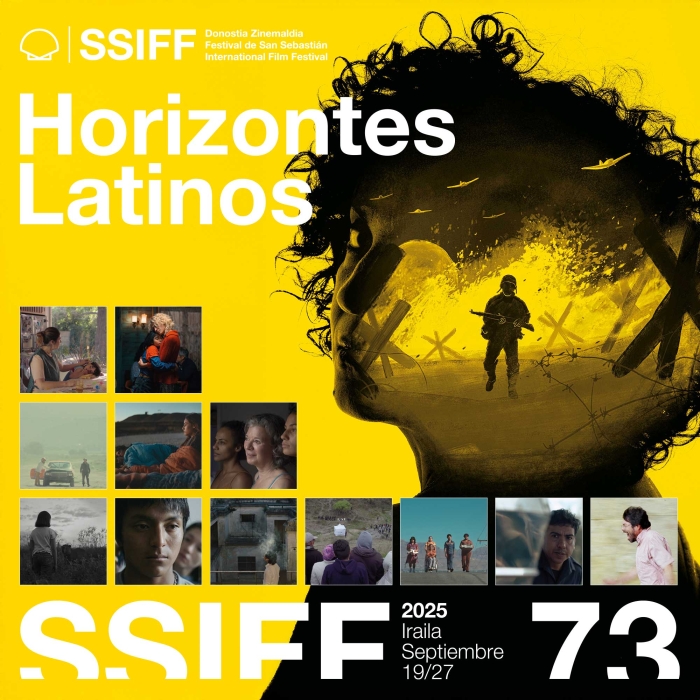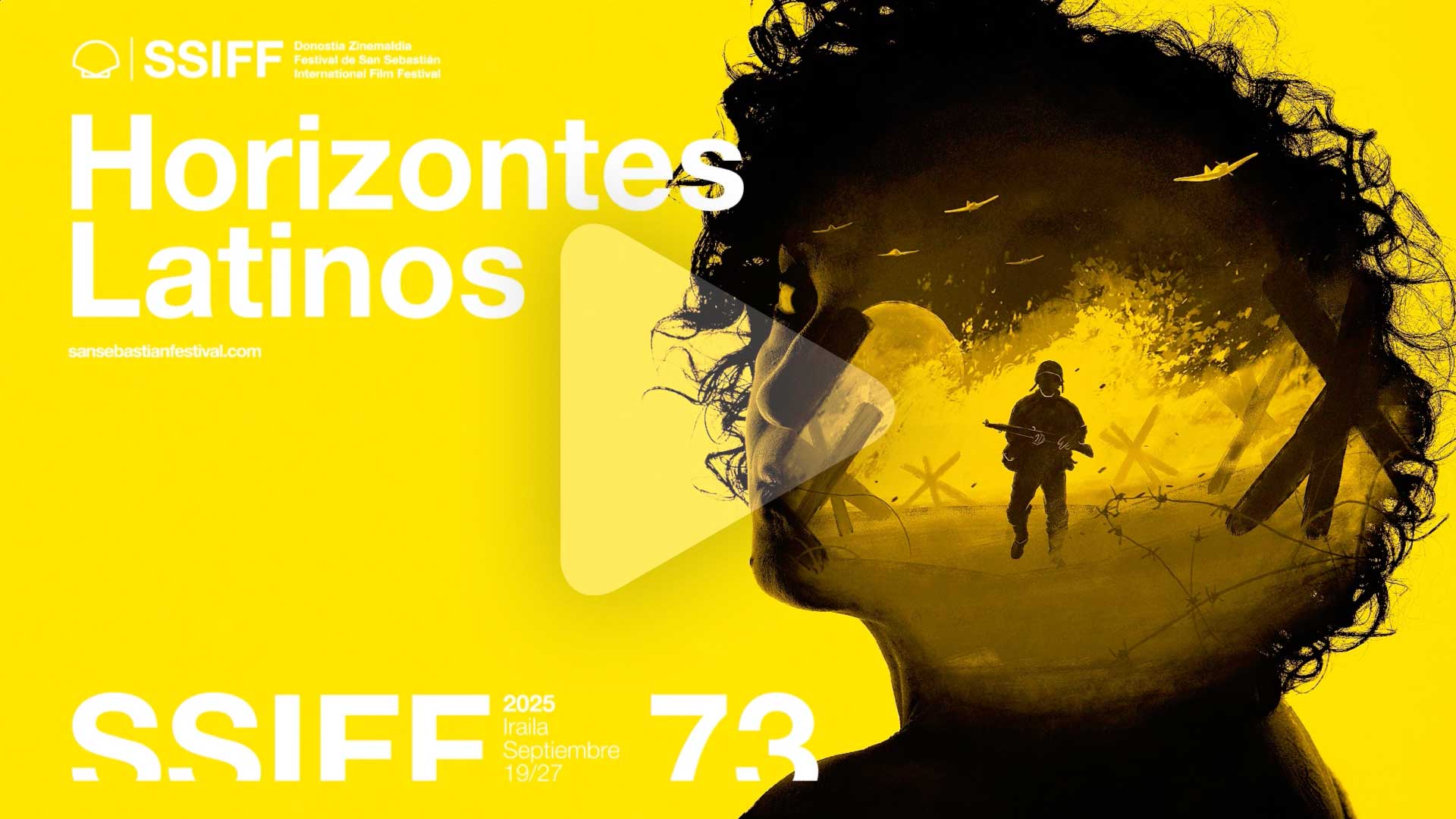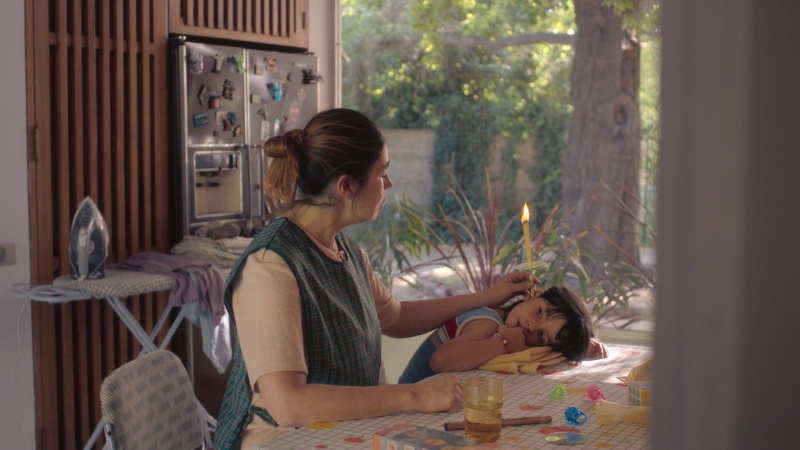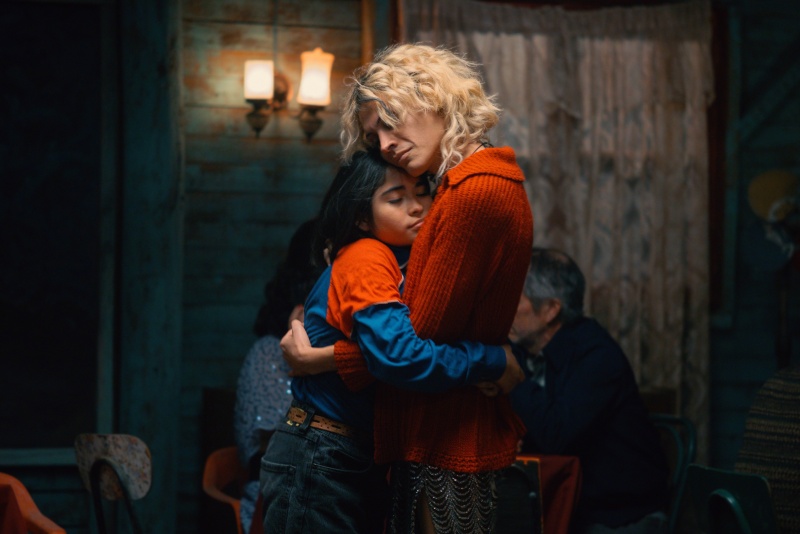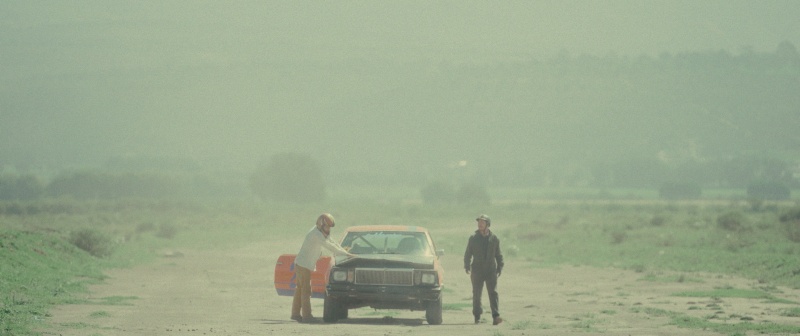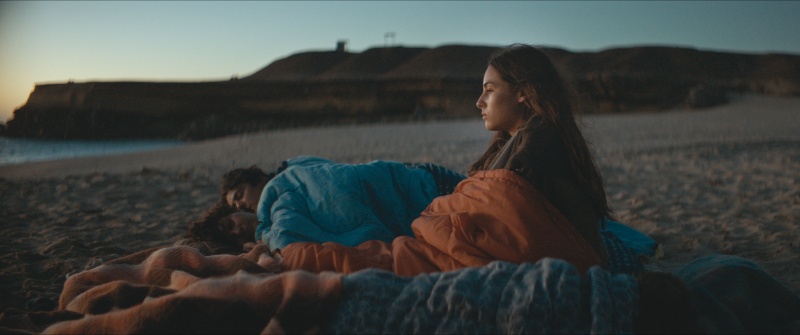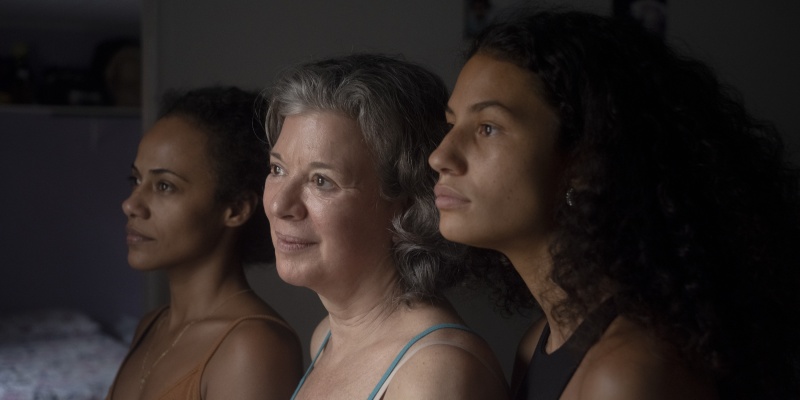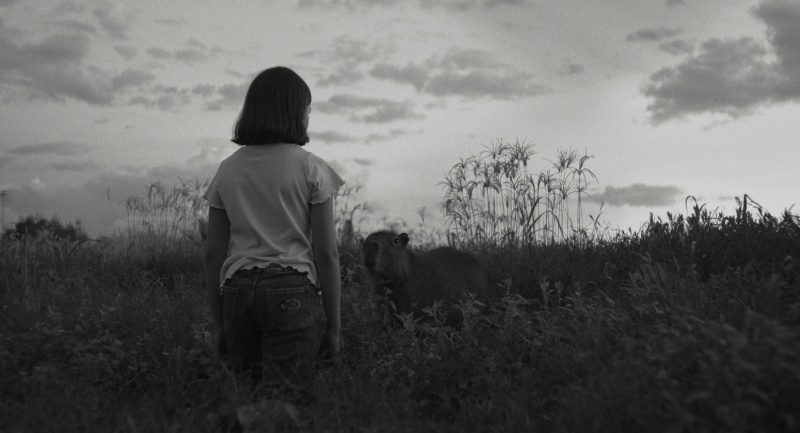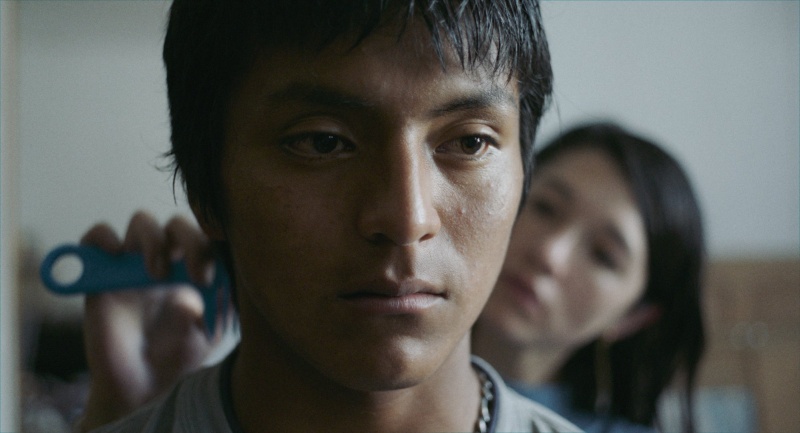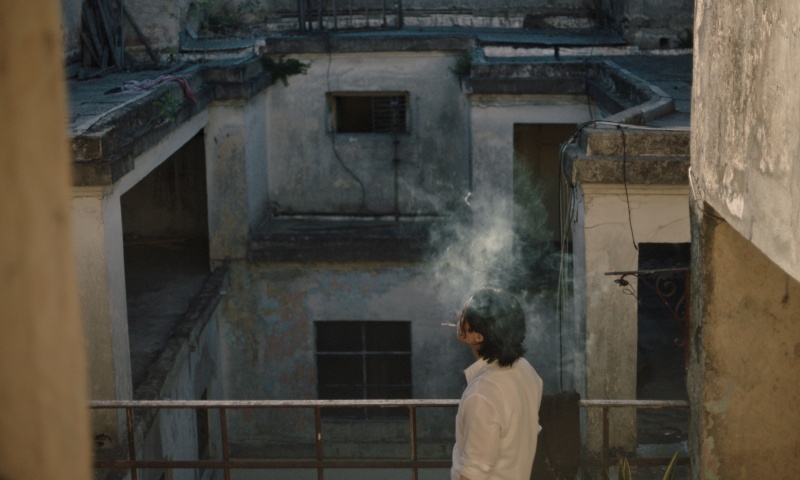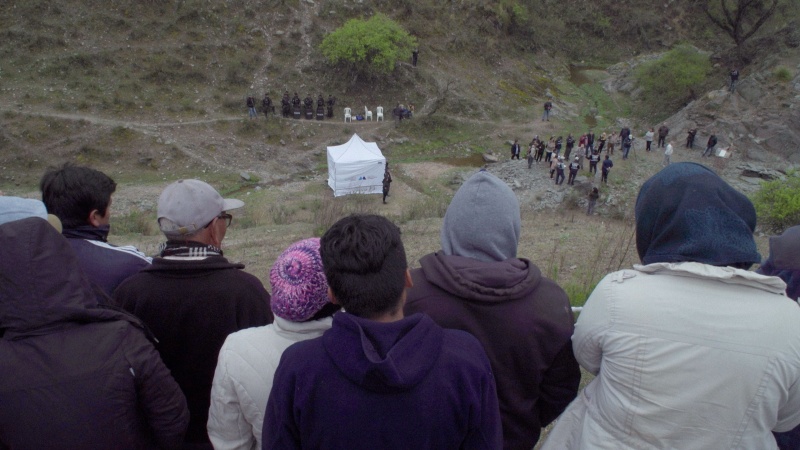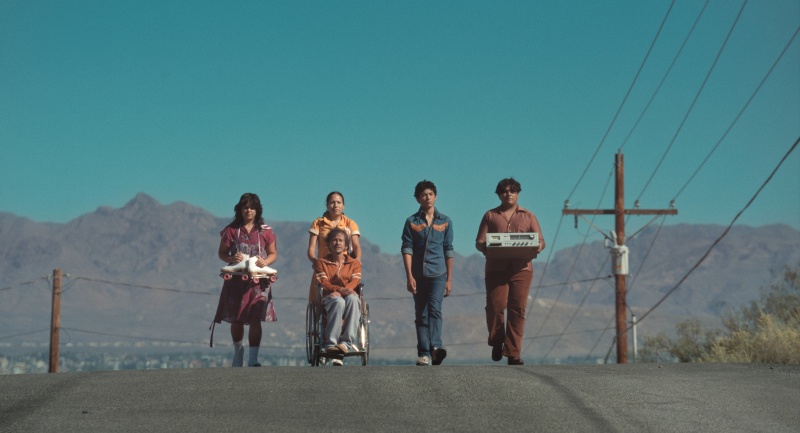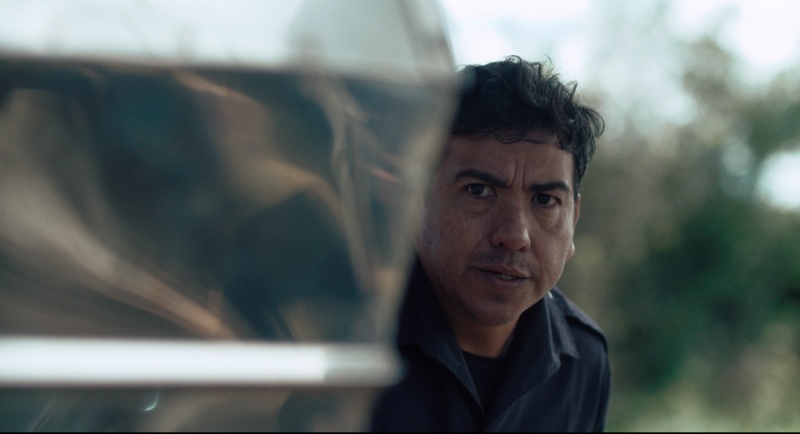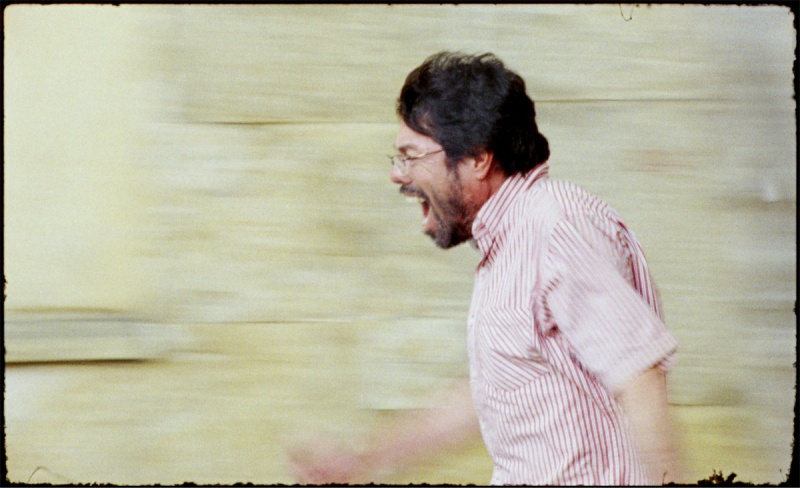Horizontes Latinos will include, at the 73rd edition of the San Sebastian Festival, the world premieres of Limpia, the latest work from Dominga Sotomayor and opening film of the competition, and Dolores, from Maria Clara Escobar and Marcelo Gomes, as well as titles selected for and awarded at Cannes, Berlin, Venice, Tribeca, Locarno and Toronto. Some of them have been able to make their way forward thanks to the backing of the Festival programmes (Europe-Latin America Co-Production Forum, Ikusmira Berriak and WIP Latam). The section is made up of a selection of twelve feature films of the year, as yet unseen in Spain, made from amongst all those total or partially produced in Latin America, which are either directed by filmmakers of Latino origin or set against the backdrop or subject of Latino communities in the rest of the world.
The world premiere of Limpia, from Dominga Sotomayor (Santiago de Chile, 1985), will open the competitive section. The director of De jueves a domingo (2012), Tarde para morir joven (2018) and Correspondencia, co-directed with Carla Simón (Zabaltegi-Tabakalera 2020), adapts the best-seller of the same name by the Chilean author Alia Trabucco, narrating the relationship between a housemaid and the 6-year-girl in her care.
Closing Horizontes Latinos is the winning film of the Ikusmira Berriak 2020 Award, La misteriosa mirada del flamenco / The Mysterious Gaze of the Flamingo, the feature film debut from Diego Céspedes (Santiago de Chile, 1995), winner of the Un Certain Regard Award at Cannes. This is a modern western in which a young girl sets out to wreak revenge on the people who blame her family for a strange disease related to love between men. The Chilean filmmaker won the Nest Award with his first short film El verano del león eléctrico (2018), and with the second, Las criaturas que se derriten bajo el sol / The Melting Creatures (2022), participated in the Semaine de la Critique at Cannes and opened Zabaltegi-Tabakalera.
Also having developed her project at the Ikusmira Berriak residencies is Ana Cristina Barragán (Quito, 1987), who will present Hiedra / The Ivy in Horizontes Latinos following its showing in the Orizzonti section of the Venice Festival. The Ecuadorian filmmaker, former student at the Elías Querejeta Zine Eskola (EQZE), narrates the obsession of a traumatised woman for a boy younger than herself. Her debut, Alba (2016), participated in the Rotterdam Festival and landed a special mention from the Horizontes Award, the section she closed in 2022 with La piel pulpo / Octopus Skin (WIP Latam 2021).
Fernando Eimbcke (Mexico City, 1970), director of Temporada de patos (2004), Lake Tahoe (Perlak 2008) and Club Sándwich (Silver Shell for Best Director in 2013), narrates in Olmo, premiered in the Panorama section at Berlin, the story of a family seen through the eyes of a 14-year-old teen in the late 70s. Eimbcke will participate twofold in the 73rd edition of the San Sebastián Festival, where he will also present the work in progress for his upcoming project, Moscas / Flies in WIP Latam.
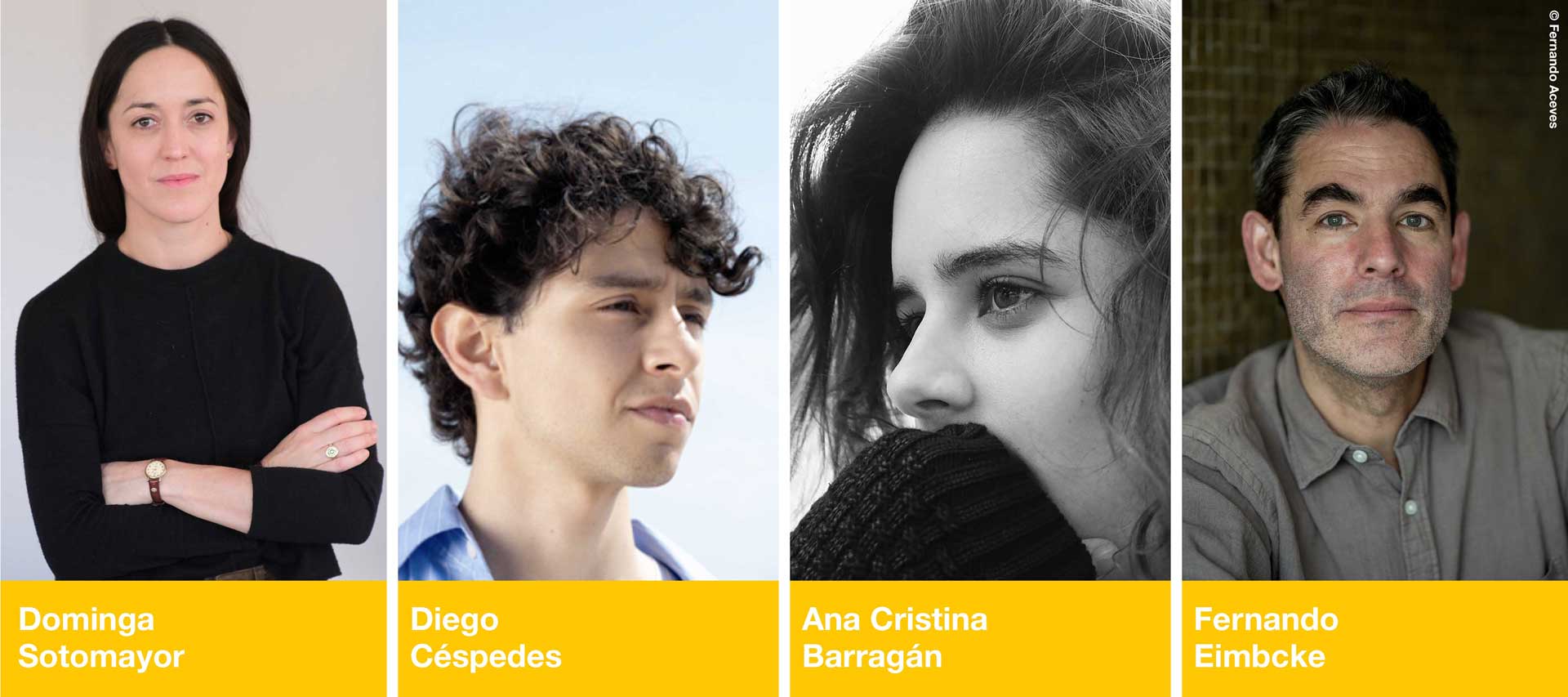
Similarly billed in the Horizontes Latinos selection is Dolores, co-directed by Maria Clara Escobar (Rio de Janeiro, 1988) and Marcelo Gomes (Recife, 1963). Escobar participated with the short film Domingo in the International Meeting of Film Schools at San Sebastián in 2005 and her first two feature films had their premieres at Lisbon and Rotterdam. Over his long career, Gomes has directed works including Cinema, aspirinas e urubus / Cinema, aspirins and vultures (Films in Progress 2004, Horizontes Latinos 2005), premiered at Un Certain Regard, and Era uma vez, eu Verônica / Once Upon a Time Veronica (2012), Horizontes Award special mention at San Sebastián. In Dolores, to have its world premiere at San Sebastián, a 66-year-old woman decides to sell her home to buy a thriving casino.
The Argentinian filmmaker Iván Fund (San Cristóbal, 1984) will show El mensaje / The Message, winning feature film of the Silver Bear Jury Prize at the last Berlin Festival which was selected for the Europe-Latin America Co-Production Forum in 2023 and WIP Latam in 2024. The latest work from the author of Piedra noche / Dusk Stone (WIP Latam Industry Award 2020, Giornate degli Autori and Horizontes Latinos, 2021) is an emotion-packed road movie following a 9-year-old girl and her guardians who scrape a living as pet mediums.
Un cabo suelto / A Loose End, winner of the WIP Latam Industry Award 2024 and selected for the Co-Production Forum in 2023, will also appear in Horizontes Latinos following its premieres in the Spotlight section of the Venice Festival. Serio Prina plays a low-ranking cop on the run from the Argentinian police force who arrives in Uruguay in the third feature film from Daniel Hendler (Montevideo, 1976) who, with Norberto apenas tarde / Norberto’s Deadline (2010), won the Films in Progress Award, the section in which he also took part with El candidato (2016) following its selection for the Co-Production Forum.
Cuerpo Celeste, second feature film from the Chilean Nayra Ilic García (Santiago, 1977), participated in the Europe-Latin America Co-Production Forum in 2021 and won the Egeda Platino Industry Award for Best WIP Latam last year. The film, which has reaped special mentions at Tribeca and Guadalajara, follows a teenager in the 90s during the Chile of the transition, whilst she herself is undergoing her own change, forever marking the way she sees the world.
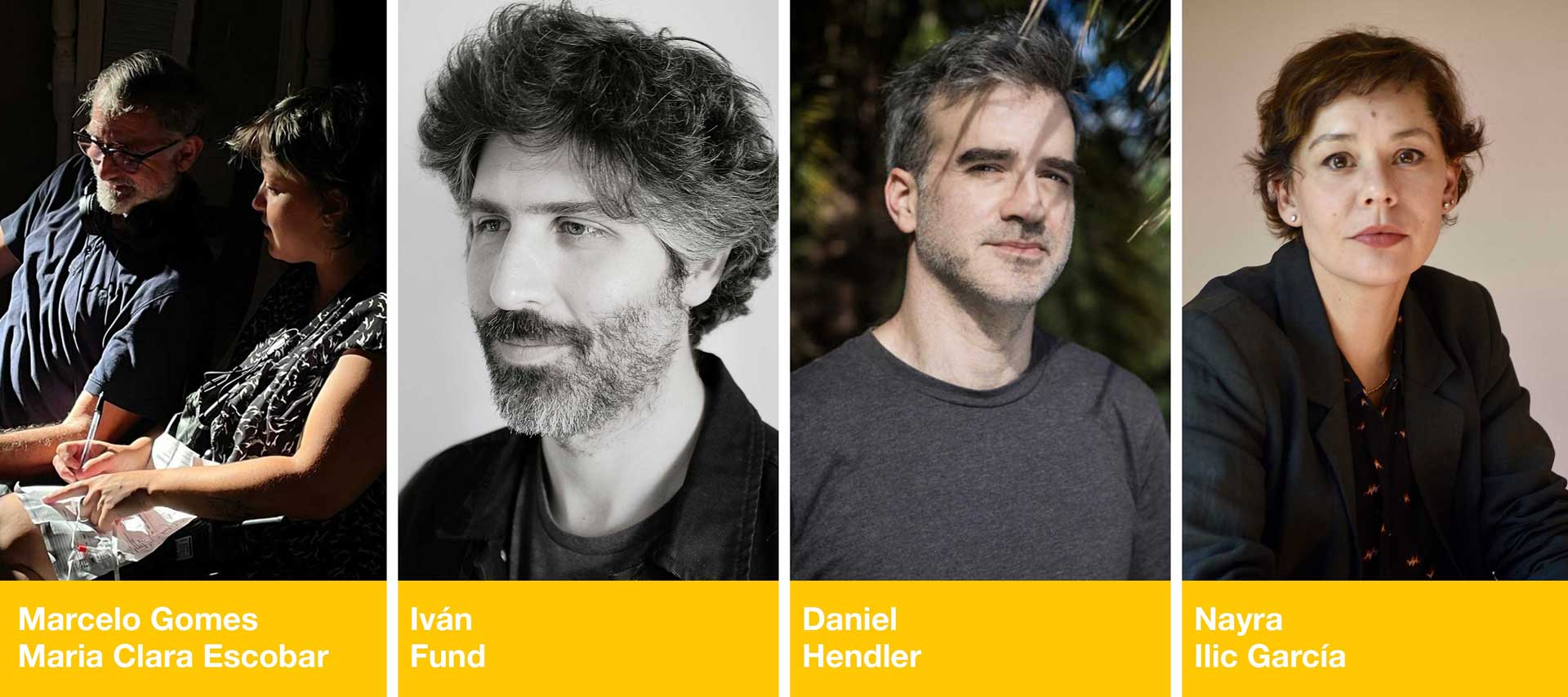
The Argentinian documentary-maker Cecilia Kang (Buenos Aires, 1985) brings her feature film debut with Hijo mayor / Elder Son, about a Korean family who decide to start anew in Argentina. The film, which premiered in Locarno, received the award for best emerging director in the Concorso Cineasti del Presente section.
Lucrecia Martel (Salta, 1966) will present in Horizontes Latinos, her latest film, Nuestra tierra / Landmarks, selected out of competition for the official competition in Venice. Nuestra tierra looks back at the murder of the leader of the Chuschagasta Indian community, Javier Chocobar, in northern Argentina. The director of La ciénaga / The Swamp (Perlak, 2001) co-wrote this non-fiction with the filmmaker and actress María Alché.
The second film from Simón Mesa Soto (Medellín, 1986), Un poeta / A Poet, was recognised with the Un Certain Regard Jury Prize at Cannes. His feature film debut, Amparo (2021), won a prize at the Semaine de la Critique in Cannes and also screened as part of Horizontes Latinos. In Un poeta, the protagonist, who has failed to succeed in his literary career, discovers an adolescent with a gift for writing.
Cobre / Copper, the latest film from Nicolás Pereda (Mexico City, 1982), will screen as part of the Latin America selection after receiving a special mention at the FidMarseille and being selected at Toronto. The director of Perpetuum Mobile (Horizontes Latinos, 2009), El verano de Goliat / Summer of Goliath (2011), which carried off the Orizzonti Award and was included in the 4+1: Contemporary Mexican Cinema season at San Sebastián and Fauna (Zabaltegi-Tabakalera 2020), tells the story of a man who comes across a dead body on his way to work.
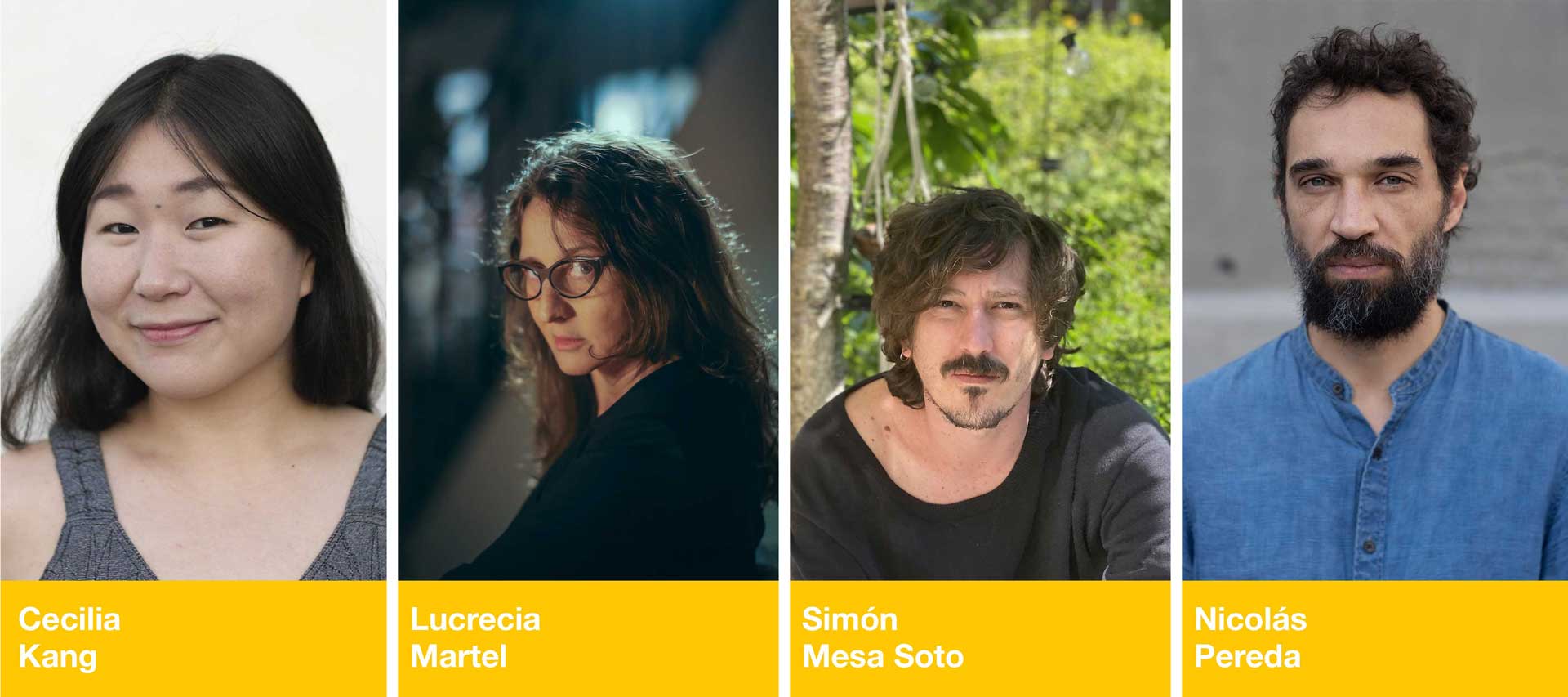
All of the films in the Horizontes Latinos section compete for the Horizontes Award, coming with 35,000 euros going to the majority producer and Spanish distributor of the film. The Horizontes Award Jury has the task of viewing and deciding the winning titles. The films in the section which are the first or second works of their director (in this case, La misteriosa mirada del flamenco / The Mysterious Gaze of the Flamenco, Cuerpo celeste and Un poeta / A Poet) also compete for the DAMA Youth Award, decided by a jury of 150 students aged 18-25 years.
Inspired by Alia Trabucco's bestselling novel, Limpia is a psychological thriller telling the story of the intense relationship between Estela, a domestic worker, and the six-year-old girl she cares for day and night. As their bond deepens, they build a secret and dependent world, which will lead them to an inevitable outcome.
In the early 80s, in the Chilean desert, 11-year-old Lidia is raised by a queer family banished to the outskirts of an unpleasant and dusty mining town. They are accused of causing a mysterious disease that’s starting to spread, said to be passed on through a simple gaze, when one man falls for another. In this modern western, Lidia leads the quest for revenge, taking on the violence, the fear and the hatred, where the family is her only haven and love could be the real danger.
Coming across a body on his way to work in a remote mining town, Lázaro is regarded with suspicion by the members of his community, and even of his own family. When lung disease forces him to take time off from the mine, doubts regarding his true state of health intensify, stoking rumours about his potential involvement in the crime. Lázaro finds comfort in his aunt, only a few years older than himself and with whom he develops an increasingly more ambiguous relationship.
Chile, summer 1990. As the dictatorship is in its final throes, fifteen-year-old Celeste is spending the holidays with her family on a beach by the Atacama Desert when an event shatters her adolescence and sends her mother into a downward spiral. Months later, drawn by the promise of a solar eclipse, Celeste returns to the spot, but nothing is the same. In a changing country, she must find her own path.
On the eve of her 65th birthday, Dolores has a premonition: her life is about to change. She will own a successful casino. However, her gambling addiction of the past may work against her. Deborah, her only daughter, waits for her boyfriend's release from prison to start a new life, whilst her granddaughter Duda clings to a chance of working in the United States. All three women will strive to make their dreams of a better life a reality, going for it all or nothing.
At the height of the financial crisis, a girl with the gift of being able to talk to animals and her opportunistic guardians make a living from organising pet medium sessions as they travel in a small camper van along the dusty trails of the Argentinian countryside. A supernatural business, where the transcendental means cash and opportunism brushes with the truth. Magic or scam, the service is real and innocence a treasure.
Azucena spies on a group of teenagers who live together like siblings in an orphanage. She's 30 years old but stuck in the past on account of a life-changing event. Although their social worlds keep them apart, Azucena searches for something within the group, particularly focusing on 17-year-old Julio. The encounter between these two wounded people is shaped by pain, attraction, the Oedipus complex, laughter and tenderness.
A Korean family decides to look for new opportunities and find ways of grieving for what they have lost on the way: Lila, a young Korean-Argentinean girl, navigates the contradictions of her identity and tries to find her place in the world. Meanwhile, her father Antonio arrives in Latin America 18 years earlier as a young man in search of new horizons, deciding to bet everything he has on the promise of a young immigrant's dream. A generational saga that returns to the past to reinvent today.
In 2009, a man and two accomplices try to evict members of the Indigenous community of Chuschagasta, in northern Argentina. Claiming ownership of the land and armed with guns, they kill the community's leader, Javier Chocobar. The murder is caught on video. It takes nine years of protests before court proceedings are finally opened in 2018. During all this time, the killers remain free.
1979, New Mexico, USA. Olmo is stuck. Today is his turn to take care of his sick father even though he is only 14 years old and would much rather be hanging out with his best friend, Miguel. But when he gets invited to a party by his beautiful neighbour, Nina, he will do whatever he can to get out of his duties, embarking on a journey of mischief and chaos. As the night unfolds, he may come to love the very place he's spent so long trying to escape: his home.
Santiago, an Argentinian police constable, crosses the border into Uruguay on the run from the other police officers on his trail. Putting his uniform to good use, he inspects regional food stalls, testing dairy products and cold cuts to survive, while trying to go unnoticed amongst the locals. With neither money nor a place to stay, but with kindness and wit, he starts to carve out a new life for himself, receiving help from the local characters who cross his path, and even meeting the person he believes could be the love of his life.
Óscar Restrepo, the poet of the title, has been incapable of measuring up to his promising first steps in literature, and gets by as he can while caring for his mother. Óscar finds a kindred spirit in his student Yurlady, a young woman whom he sees as a diamond in the rough of poetry.
